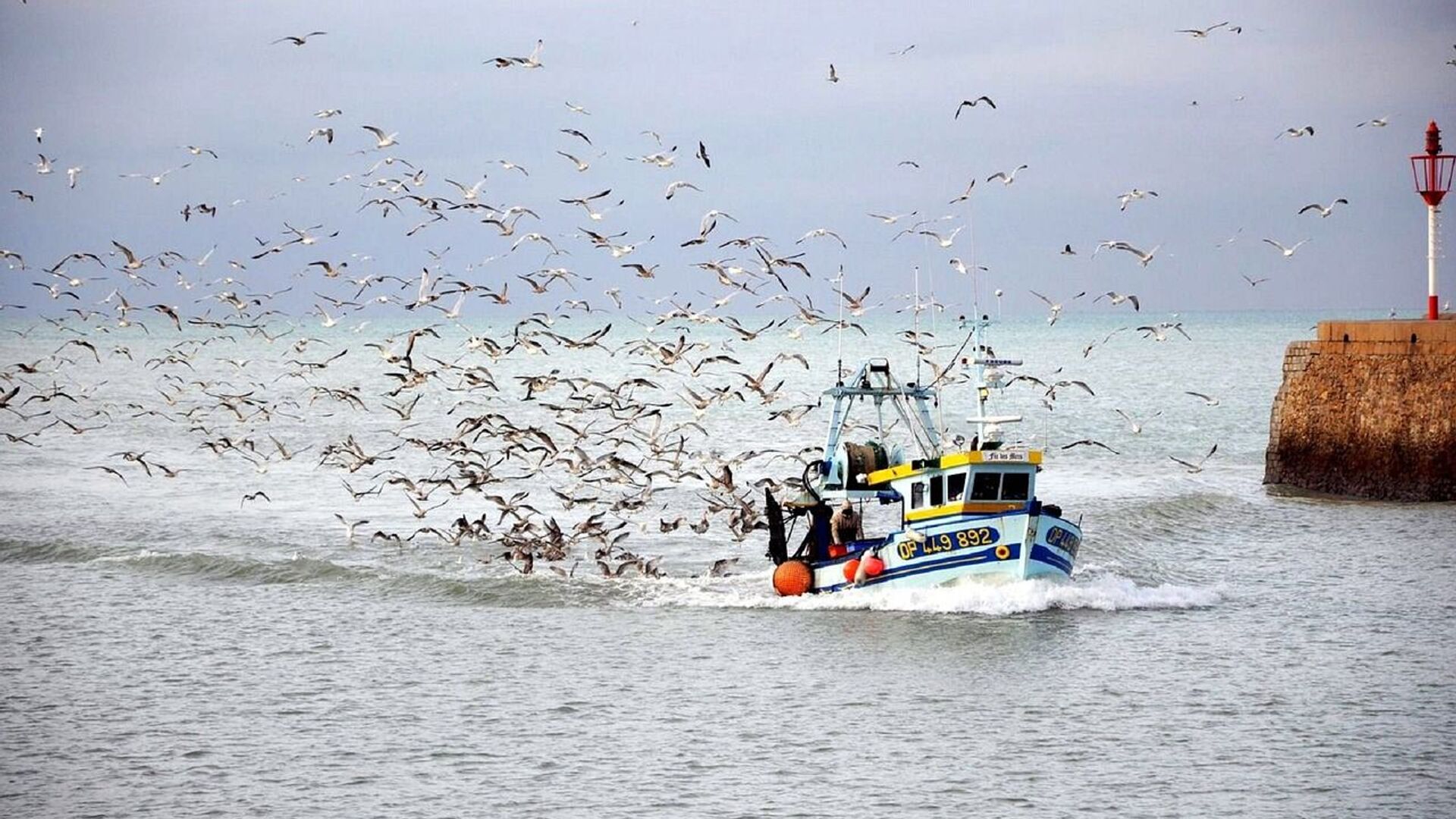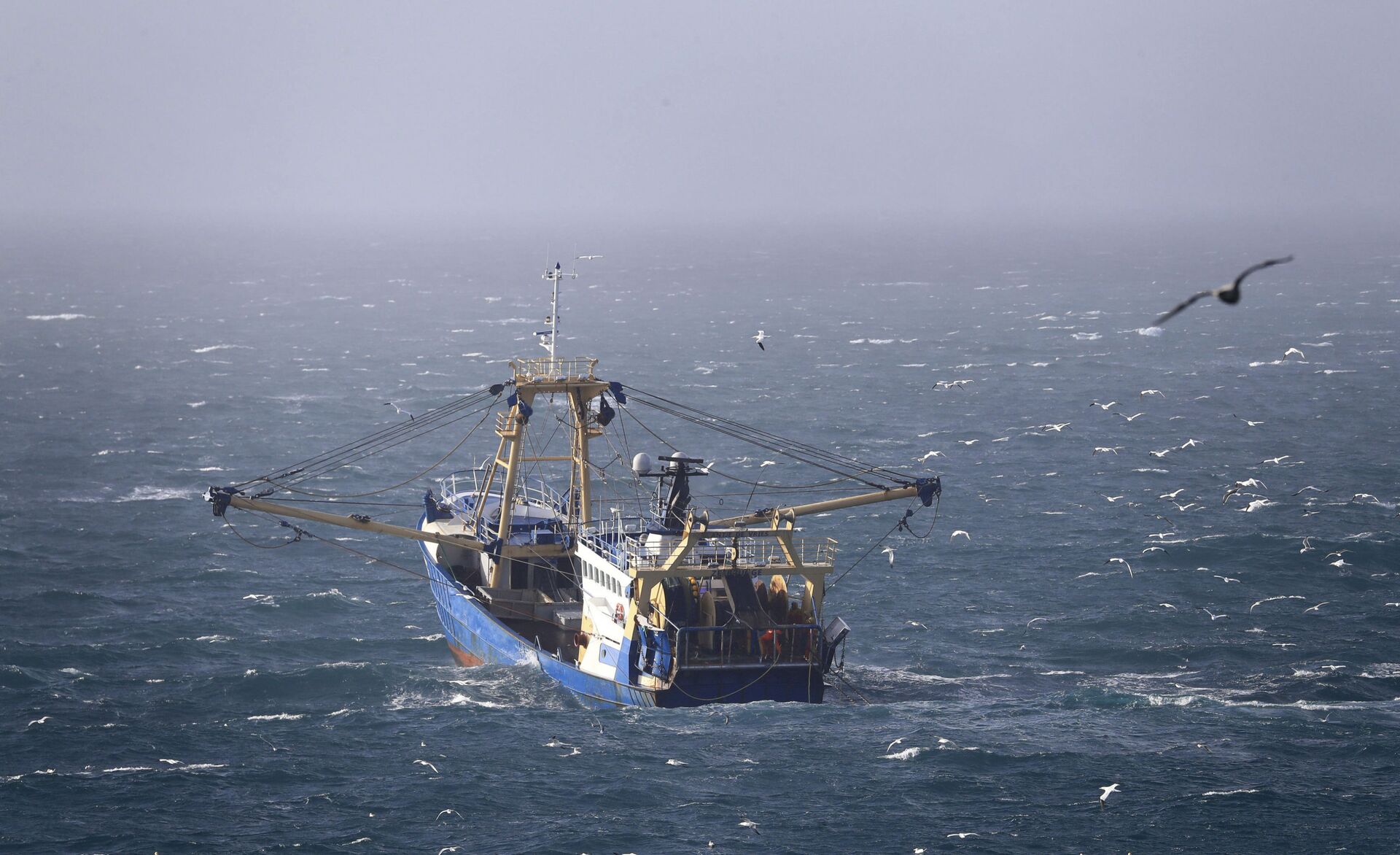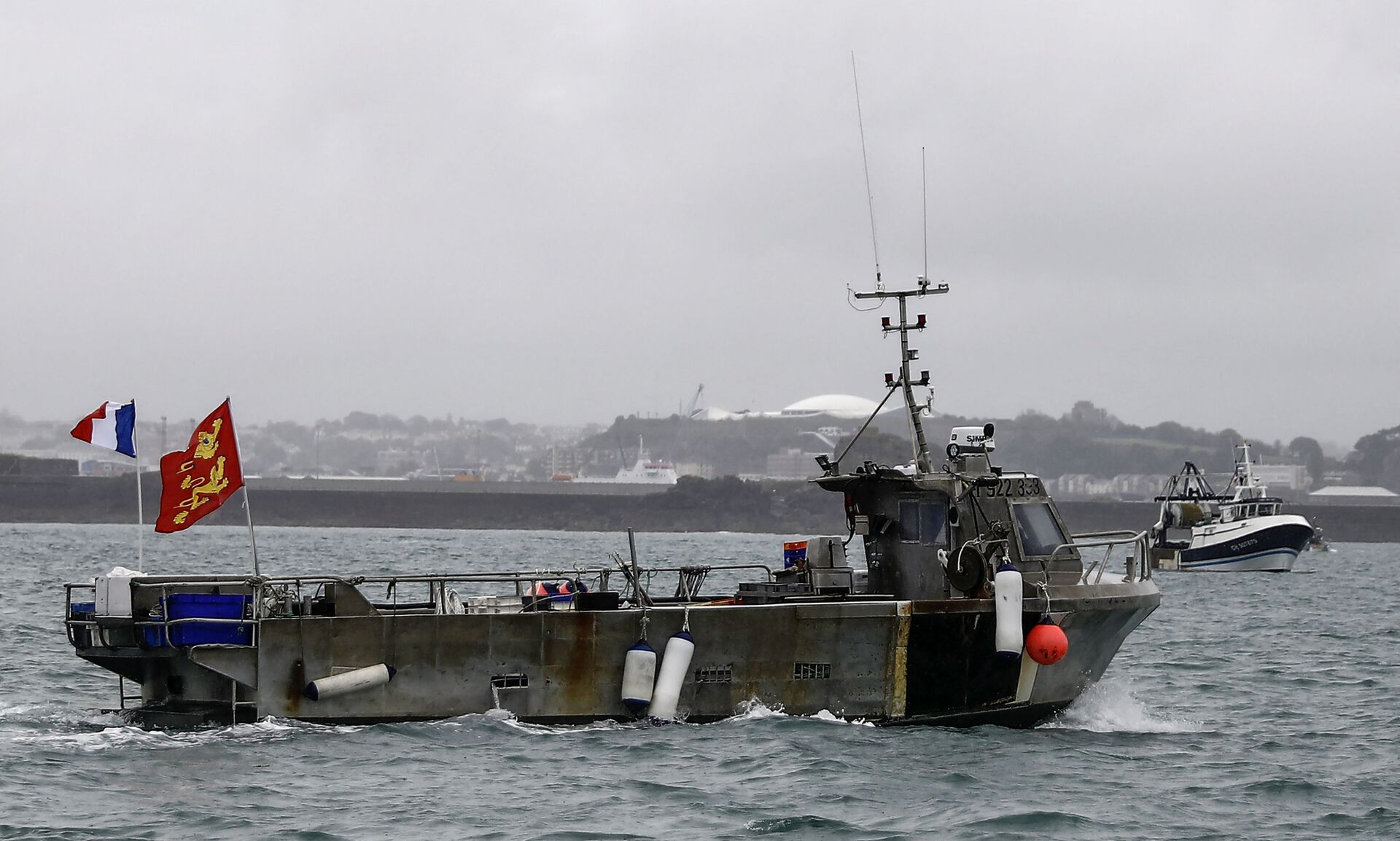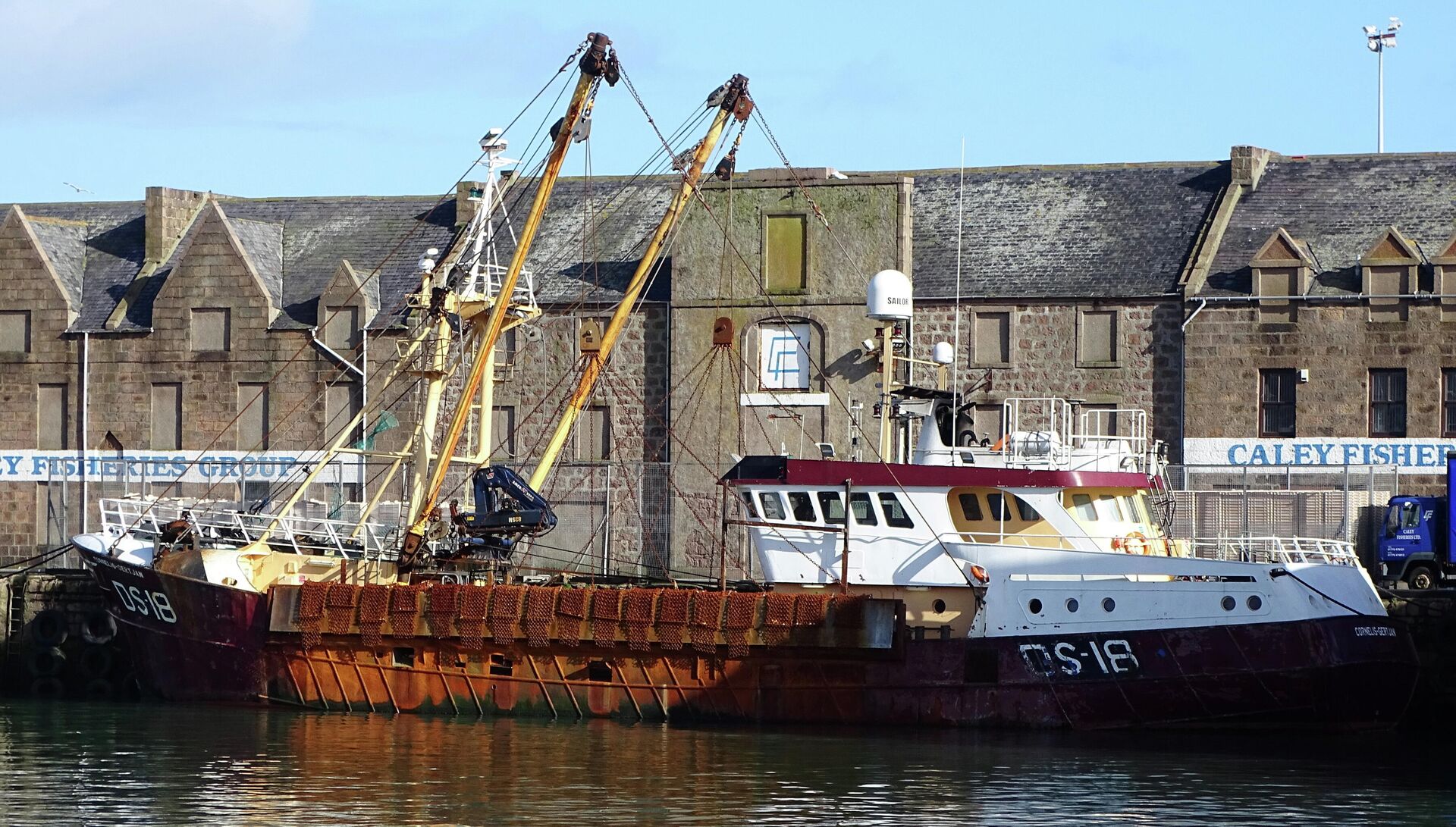EU Sides With France on Fishing Licences Row, Urges UK to ‘Come to Reason’ as Tensions Simmer
06:44 GMT 29.10.2021 (Updated: 15:16 GMT 28.05.2023)

CC0 / /
Subscribe
The simmering French-British fishing boat spat was one of the topics on the agenda when EU Internal Market Commissioner Thierry Breton embarked upon a visit to Paris on Thursday ahead of France taking over the rotating EU Council presidency in January.
Thierry Breton, European Commissioner for Internal Market, has stated that he completely understands France’s position regarding post-Brexit fishing licences with the UK.
"I completely understand the position and the exasperation of France. The support of the European Commission is there and it always has been from the start," said Breton.
The French politician also voiced the belief that it was time for British authorities to adopt a “reasonable’ position regarding the issue that has soured relations between the two countries.
Échanges riches avec le Ministre de l’Europe et des Affaires étrangères @JY_LeDrian ce matin au Quai d’Orsay 🇪🇺🇫🇷
— Thierry Breton (@ThierryBreton) October 28, 2021
Une Europe forte défend ses intérêts, assure sa souveraineté et projette ses valeurs.
Nous partageons cette conviction.#EuropePuissance #PFUE2022 pic.twitter.com/ge5rpBuAEB
The EU Internal Market Commissioner, who began a two-day visit to Paris on 28 October, urged Downing Street to show respect for agreements concluded when it was exiting the bloc.
Also on Friday, French Agriculture Minister Julien Denormandie was cited by France 2 TV as deploring lack of progress in talks between France and Britain over post-Brexit fishing licences. According to Denormandie, Paris was within its right to consider sanctions against the UK.

A fishing boat at work in the English Channel, off the southern coast of England, Saturday Feb. 1, 2020. The fishing industry is predicted to be one of the main subjects for negotiations between the UK and Europe, after the UK left the European Union on Friday.
© AP Photo / Gareth Fuller
Britain and France have been at loggerheads over how to resolve the contentious issue of fishing licences following the UK's departure from the European Union. France earlier vowed to impose sanctions against British ships and wares if London failed to heed Paris’ demands to issue more fishing licences. The French side argued that the UK had issued 50% fewer licenses than it was supposed to in line with previously concluded agreements.

A French fishing boat, one of several, takes part in a protest in front of the port of Saint Helier off the British island of Jersey to draw attention to what they see as unfair restrictions on their ability to fish in UK waters after Brexit, on May 6, 2021. -
© AFP 2023 / SAMEER AL-DOUMY
French-UK Fishing Spat
On 27 October France suggested it might start taking steps against the UK over the issue, such as extra border checks, bans on the UK boats accessing French ports, and even some actions that might impact power supplies to Britain.
On Thursday, tensions flared further as France announced that it had seized a British scallop dredger, escorting it to the Port of Le Havre. According to Paris, the vessel's crew allegedly failed to present proof they were allowed to fish in French waters. Yet another UK boat was given a verbal warning. According to South West Fish Producers Organisation, a group representing English fishermen, the seized vessel is called the "Cornelis Gert Jan".
The UK decried Paris' warnings and recent actions as "disappointing and disproportionate", saying they are "not what we would expect from a close ally and partner." London also warned Paris against taking further steps that it regards as retaliation. A Downing Street spokesperson told the news outlet LBC that the French ambassador to the country would be summoned to the Foreign Office to discuss the latest spiral in the fishing dispute between the two states.

British fishing trawler Cornelis Gert Jan is seen docked in Peterhead, Scotland, Britain around March, 2019 in this social media image. Picture taken sometime in March 2019
© REUTERS / GRAHAM BUCHAN INNES
On Friday, Cyrille Fournier, who represents the prosecutor's office for the French port of Le Havre issued a statement to say that the captain of the seized boat will be facing a court hearing on 11 August 2022. Fournier, cited by Reuters, added that the UK trawler did not have the required licences to operate in those specific parts of French territorial waters.
In response, Scottish company Macduff Shellfish, which was operating the vessel, was cited as insisting that all appropriate licences had been secured.
'So the French can seize British fishing vessels, but are unable to stop rubber dinghies crossing the Channel?'
— LBC (@LBC) October 29, 2021
Nick Ferrari puts Environment Secretary George Eustice on the spot.@NickFerrariLBC pic.twitter.com/dj7XmsnLS8
British Environment Secretary George Eustice was cited by Sky News as saying on Friday that the UK authorities "reserve the ability to be able to respond in a proportionate way".
Under the terms of the Brexit trade deal, which came into force on 1 January, EU access to UK waters and UK access to EU waters is now managed through a licensing system for fishing vessels. Known as the Trade and Cooperation Agreement, the Brexit trade deal will also see UK fishing boats end up with a greater share of fish from UK waters, with part of the EU's previous share being transferred during an "adjustment period" until 2026. Previously, when it was a member of the EU, the UK was part of the bloc's Common Fisheries Policy, which gave all European fishing fleets equal access to EU waters.
